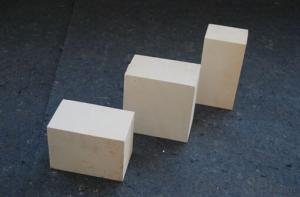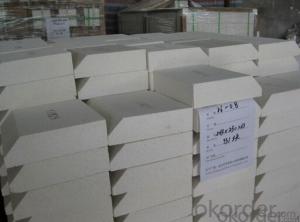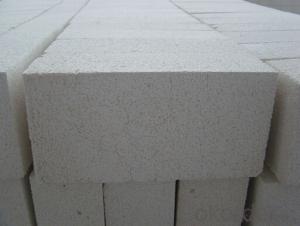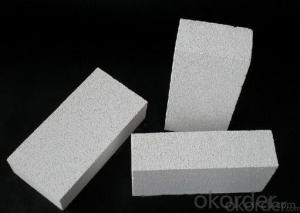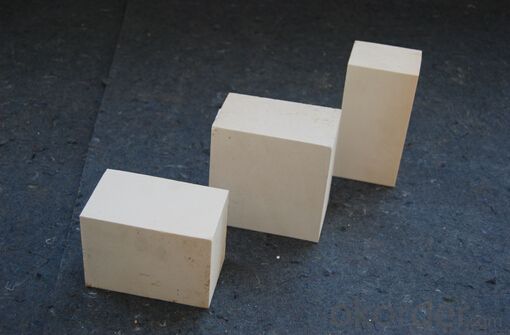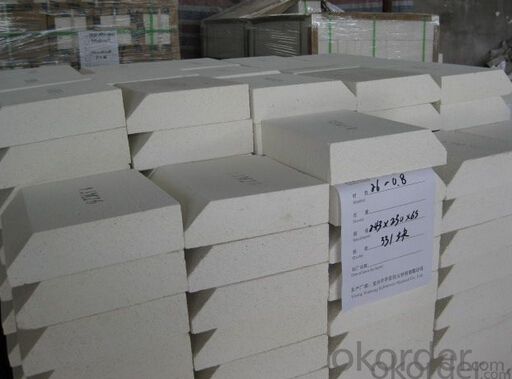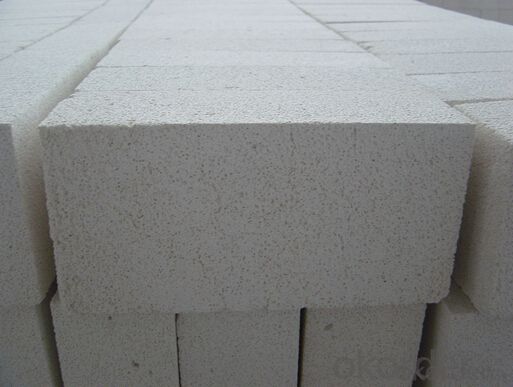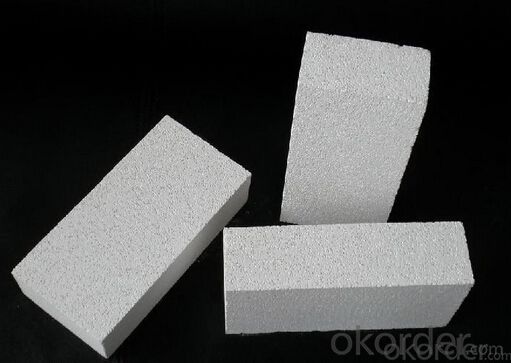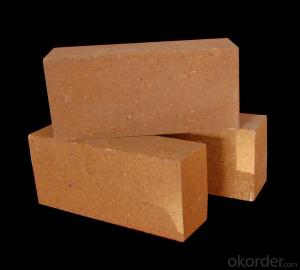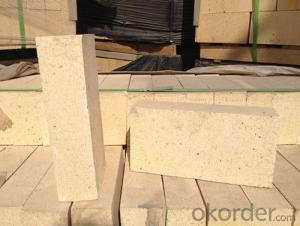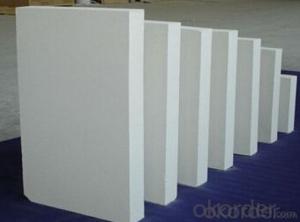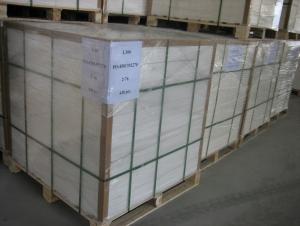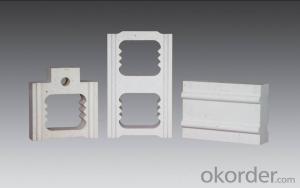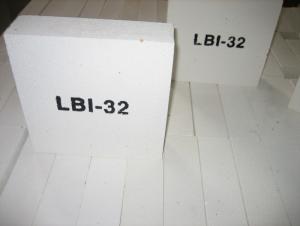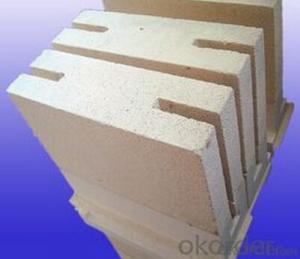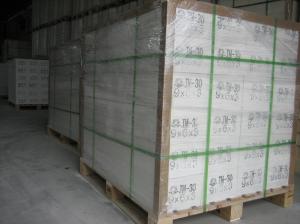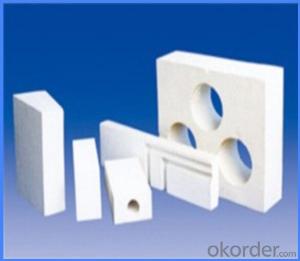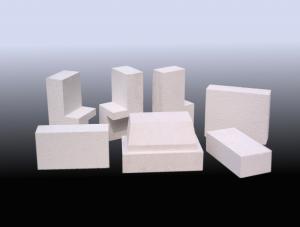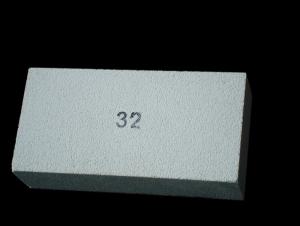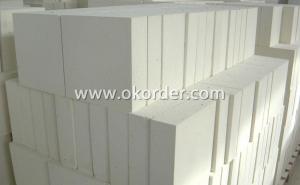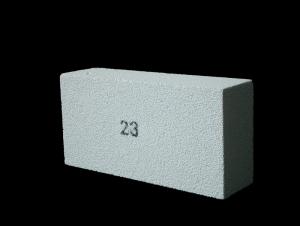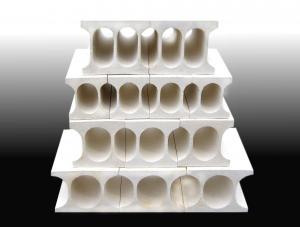Insulating Fire Brick - Refractory Mullite GJM 32
- Loading Port:
- Shanghai
- Payment Terms:
- TT OR LC
- Min Order Qty:
- 5000 kg
- Supply Capability:
- 100000 kg/month
OKorder Service Pledge
OKorder Financial Service
You Might Also Like
OKORDER Series Insulating Bricks
OKORDER series insulating bricks are a kind of highly efficient, energy saving, low-carbon, environmental protection advanced products which are manufactured according to ASTM standard. OKORDER series products are the best lining and insulation materials in all types of industrial furnaces in the field of Metallurgy, Aluminum, Petrochemical, Ceramics, Power and Glass. They can be applied as heat insulation or no-melt erosion parts of the working layer. The products have been widely used in the following furnaces and achieved satisfactory results.
Application of Insulating Bricks
Metallurgy industry: Blast furnace, Hot blast stove, Reheating furnace, etc.
Petrochemical industry: Ethylene cracking furnace, Hydrogen production furnace, Primary reformer furnace, Reheating furnace, etc.
Ceramics Industry: Roller kiln, Pusher kiln, etc.
Glass industry: Glass furnace regenerator, etc.
Carbon Industry: Carbon roaster, etc.
Aluminum electrolytic industry: aluminum reduction cells,etc.
Other industries: Tunnel kiln, Shuttle kiln, etc.
Advantages of Insulating Bricks
Low Thermal Conductivity: More porosity brings excellent insulation effect, energy saving.
High Crushing Strength: High crushing strength under thermal state, volume stability.
Low Heat Storage: Little thermal storage when absorb more heat, energy saving effect is obvious.
High Purity: Low content of iron, alkaline and metal impurities.
Accurate Dimension: Precise brick size by machining, cutting and grinding special shapes, expediting bricklaying.
Picture of Insulating Bricks
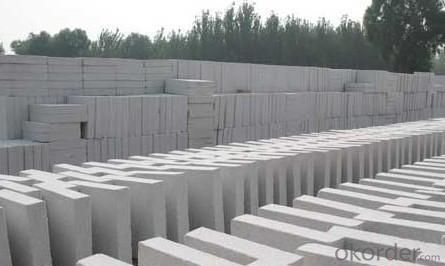
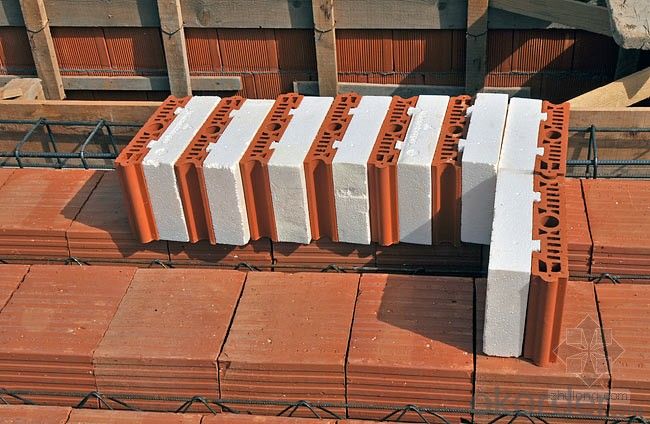
FAQ
1. Which products do you have?
We have all kinds of refractory brick, castable, mortar, cement, ceramic fiber products, etc.
Or you could browse our products to choose what you need.
2. How do you control the products quality?
With strict quality control system throughout the materials selection and production process, our refractory and ceramic fiber products quality is effectively controlled to meet customer requirements.
From the raw materials selecting, our quality control begin. The quality certificates of raw materials are required and each batch will be tested before using. During production, the quality control are conducted by workers and then each piece will be sorted and examined by quality supervise.
3. Can you give me a brief introduction of the application of your products?
We are mainly specializing in the refractory materials in iron and steel, cement, glass, ceramics, petrochemical, electric power Industry, etc.
4. If I need your offer, what information do you need?
In order to choose suitable products, it will be appreciated to provide us the information, such us specification, technical data, order quantity, products application etc.
If any question, please contact us freely.
- Q: Do insulating fire bricks require any special fireproof gaskets or seals?
- Special fireproof gaskets or seals are not necessary for insulating fire bricks. These bricks are specifically made to withstand high temperatures and have a strong resistance to heat, eliminating the need for any extra gaskets or seals. They are commonly used in kilns, furnaces, and fireplaces to provide insulation and retain heat. Their composition and structure create a barrier against heat transfer, eliminating the necessity of additional seals or gaskets. Nevertheless, it is crucial to install and align the bricks correctly to ensure a secure fit and optimize their insulating capabilities.
- Q: Do insulating fire bricks require any curing or drying time?
- No, insulating fire bricks do not require any curing or drying time. They are ready for use as soon as they are installed.
- Q: Can insulating fire bricks be used in heat treatment furnaces?
- Indeed, heat treatment furnaces can make use of insulating fire bricks. These bricks are specifically engineered to possess a low thermal conductivity, enabling them to endure elevated temperatures while minimizing the dissipation of heat. This quality renders them ideal for deployment in heat treatment furnaces, where the preservation of a stable temperature is vital for the triumphant execution of the heat treatment procedure. Moreover, insulating fire bricks exhibit exceptional insulating attributes, thereby curtailing energy usage and enhancing the overall efficiency of the heat treatment furnace. Consequently, the utilization of insulating fire bricks in heat treatment furnaces is a prevalent practice across diverse industries.
- Q: Can insulating fire bricks be used for insulation in ovens?
- Yes, insulating fire bricks can be used for insulation in ovens. These bricks are designed to withstand high temperatures and are highly effective in retaining heat, making them ideal for insulating ovens and other high-temperature applications.
- Q: Can insulating fire bricks be used in the construction of thermal insulation walls?
- Yes, insulating fire bricks can be used in the construction of thermal insulation walls. Insulating fire bricks are specially designed bricks that have a low thermal conductivity, which means they are excellent at preventing the transfer of heat. This makes them ideal for use in thermal insulation applications. When constructing thermal insulation walls, insulating fire bricks can be used as the primary material or in conjunction with other insulation materials such as foam boards or mineral wool. These bricks are typically lightweight, which makes them easier to handle and install. They also have high temperature resistance, allowing them to withstand the heat generated by fireplaces, ovens, or other heat-producing appliances. Insulating fire bricks offer several benefits for thermal insulation walls. They help to minimize heat loss or gain, thereby improving energy efficiency in buildings. They also help to reduce noise transmission, making them suitable for soundproofing applications. It is important to note that insulating fire bricks may not be suitable for all types of walls or building structures. Factors such as building codes, environmental conditions, and specific requirements of the project should be considered when determining if insulating fire bricks are the appropriate choice for thermal insulation walls. Consulting with a professional architect or engineer is recommended to ensure the best insulation solution for a specific construction project.
- Q: Can insulating fire bricks be used in smelting furnaces?
- Yes, insulating fire bricks can be used in smelting furnaces. Insulating fire bricks are designed to have low thermal conductivity, which helps to conserve heat and maintain high temperatures inside the furnace. This makes them an ideal choice for smelting furnaces where high temperatures are required. Additionally, insulating fire bricks also have a high resistance to thermal shock, which means they can withstand rapid temperature changes without cracking or breaking. This is particularly important in smelting furnaces where the temperature can fluctuate significantly. Overall, insulating fire bricks are an excellent option for smelting furnaces as they help to improve energy efficiency, reduce heat loss, and provide durability in high-temperature environments.
- Q: Do insulating fire bricks have a low thermal expansion rate?
- Insulating fire bricks are known for their low thermal expansion rate. They are specifically designed to endure high temperatures and thermal shocks, with one of their key features being their ability to retain their shape and dimensions even in extreme heat conditions. These bricks are produced from materials that possess a low coefficient of thermal expansion, which means they undergo minimal expansion and contraction when exposed to temperature changes. This characteristic guarantees the stability of the bricks, preventing them from cracking or breaking due to thermal stress. Moreover, the low thermal expansion rate of insulating fire bricks contributes to improved insulation performance. By minimizing the formation of gaps between the bricks during expansion and contraction, heat loss is reduced and energy efficiency is enhanced.
- Q: Are insulating fire bricks resistant to gas permeability?
- Insulating fire bricks possess gas impermeability, as they are engineered with low porosity and high density. These bricks are crafted from superior refractory materials like clay or silica and undergo a unique manufacturing process that guarantees minimal pore size and compactness. Consequently, they excel at containing gases and averting leakage. Widely employed in high-temperature settings such as furnaces, kilns, and industrial boilers, insulating fire bricks play a critical role in ensuring efficient and safe operations by maintaining gas tightness.
- Q: Are insulating fire bricks suitable for use in aluminum smelting furnaces?
- Yes, insulating fire bricks are suitable for use in aluminum smelting furnaces. They have excellent thermal insulation properties, high temperature resistance, and can withstand the harsh conditions of aluminum smelting. Additionally, their low thermal conductivity helps to reduce energy consumption and increase furnace efficiency.
- Q: Can insulating fire bricks be used in the construction of industrial boilers?
- Industrial boilers can utilize insulating fire bricks for their construction. These bricks are specially designed with low thermal conductivity, making them ideal for retaining heat in high-temperature applications. In the case of industrial boilers, insulating fire bricks can be used to line the combustion chamber and other areas that require insulation. The use of insulating fire bricks in industrial boilers offers several advantages. Firstly, their low thermal conductivity helps reduce heat loss, thereby improving the overall energy efficiency of the boiler. This can lead to significant cost savings in the long run. Additionally, these bricks have a high resistance to thermal shock, making them capable of withstanding frequent temperature fluctuations without cracking or breaking. This is particularly important in boiler applications where temperatures can change rapidly. Moreover, insulating fire bricks are lightweight and easy to install, making them a convenient choice for construction projects. They can be shaped and cut to fit the specific requirements of the boiler, allowing for a precise and efficient installation process. In summary, the use of insulating fire bricks in the construction of industrial boilers is a suitable choice due to their excellent thermal insulation properties, resistance to thermal shock, and ease of installation.
Send your message to us
Insulating Fire Brick - Refractory Mullite GJM 32
- Loading Port:
- Shanghai
- Payment Terms:
- TT OR LC
- Min Order Qty:
- 5000 kg
- Supply Capability:
- 100000 kg/month
OKorder Service Pledge
OKorder Financial Service
Similar products
Hot products
Hot Searches
Related keywords
